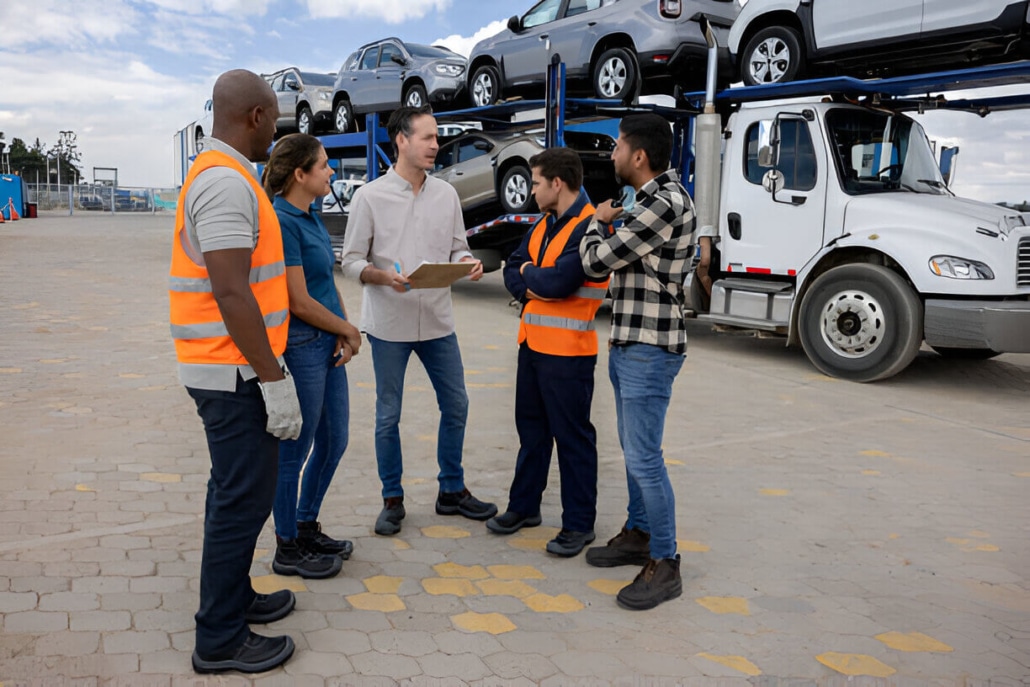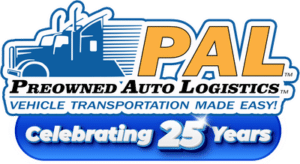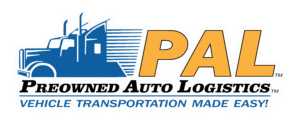How to Evaluate a Car Transporter: Questions to Consider
It’s essential to choose the right car transport company to ensure safe and reliable vehicle shipping. Making uninformed and rushed decisions may result in damages, extra costs, or inferior service. Careful consideration of all information about the transporter helps in building trust and mitigates risk.
Well-structured questions help separate con artists and unreliable providers from credible companies. This blog provides critical questions designed to help validate a transporter’s claimed professionalism and dependability, ensuring streamlined and safeguarded vehicle shipping.
Questions to Evaluate Reliability and Credibility
You won’t hand over your car to anyone unless it’s a trustworthy transporter, whether it’s an everyday sedan or a vintage beauty. Asking the right questions is key to choosing a reliable carrier and making sure they’re legit. To help you figure things out, here’s a handy list of questions to ask.
Are you licensed and registered with the DOT and FMCSA?
The U.S. Department of Transportation (DOT) and the Federal Motor Carrier Safety Administration (FMCSA) have strict safety rules for vehicle transporters. A company that has both an active DOT number and FMCSA registration is showing that it is following the laws and operating legally. So, get their number and double-check that it’s active on the FMCSA website. If a company dodges giving you this info or says it’s not essential, that’s a major red flag! Trustworthy transporters will usually give you this information initially because they want to show you their authenticity.
Can they provide proof of insurance coverage for vehicle transport?
Insurance is a safety net in case of any damage due to natural disasters or any other unforeseen events on the road during transit. When you’re checking out transporters, make sure their insurance covers cargo, specifically vehicle transport. Double-check that the policy covers the car’s full value without any loopholes, like exclusions for natural disasters. Also, check your car insurance as they often don’t cover transport. A solid, clear insurance policy is the key to protecting your ride!
How long have they been in the auto transport business?
Check how long a company has been offering auto transport services; those with five or more years of experience usually have systems and know-how to move compact cars through luxury models safely. If the transporter is relatively new, investigate its drivers or leadership team members; experienced professionals may still deliver top-quality service even though the business itself might still be young.
What are their reviews and ratings on platforms like BBB or Google?
Visit trusted platforms like Better Business Bureau, Google, or Transport Reviews to check ratings and read customer feedback. Keep an eye out for trends: glowing comments about attentive handling, while repeated complaints about late deliveries is not a good sign. Please pay close attention to how a company handles criticism; thoughtful, solution-focused responses demonstrate they value their reputation. Make sure independent review sites host customer comments instead of company websites, which often only display positive comments.
Questions about Services and Process
Here are some crucial questions about services and processes:
Do they offer door-to-door or terminal-to-terminal service?
Door-to-door is super convenient; they’ll pick up your car right from your location and drop it off exactly where you need it. It’s a lifesaver if you’re swamped or want things to go smoothly. Terminal-to-terminal means you take your car to a secure terminal and pick it up at another one. It’s usually efficient and works great if you’ve got some flexibility in your schedule. Make sure they offer both, see which one fits your life best, and confirm that the transporter can do it your way.
What types of vehicles do they transport?
Good transporters can move all sorts of vehicles, i.e., regular cars, SUVs, trucks, and even special vehicles like motorcycles, ATVs, vintage cars, or fancy luxury models. Some can even handle big rigs like RVs or boats, and they’ve got the right gear to keep them safe. Double-check that they know their job and have the right equipment for your vehicle, especially if it’s pricey or unusual, ensuring maximum protection.
Are both open and enclosed carrier options available?
Open carriers cost less and carry a bunch of cars on an open trailer. They’re fine for regular vehicles that don’t need extra love. Enclosed carriers are like VIP protection, keeping expensive, classic, or delicate cars safe from weather, road junk, and any bumps along the way, all inside a closed trailer. Make sure they can help you decide which carrier is best based on how valuable your car is, what condition it’s in, and how far it’s going. It’s all about keeping your investment safe.
Do they offer tracking and communication during transit?
Trustworthy transporters have tracking systems, often on a website or app, so you can see where your car is, what’s happening with it, and when it should arrive. Plus, they should be proactive in offering updates on pickup, move, and delivery. Ask if you have a dedicated manager to talk to if you have questions or worries. A transporter that’s open and keeps in touch builds trust and makes sure you’re always in the loop.

Questions about Pricing and Payment
Asking targeted questions about quotes, payment methods, fees, and discounts allows you to assess a transporter’s fairness and flexibility. Below are some essential questions to clarify financial aspects and secure a cost-effective, trustworthy service.
Is the quote all-inclusive, or are there hidden fees?
Please ask if the quote you got covers all the costs or if there might be extra charges arising later. Trusted transporters will give you a clear, all-in-one price, including everything from picking up the car to dropping it off, with no sneaky fees for tolls, gas, or paperwork. Ask them to break down the quote for you so you know exactly what’s covered and what’s not, i.e., if there are extra fees for big vehicles or expedited services.
What payment methods are accepted?
Check what payment methods the transporter accepts to ensure it works for you, and you feel secure. Most trustworthy companies accept credit cards, bank transfers, or online payment systems, giving you flexibility. Be sure to nail down the payment schedule and options.
Is there a cancellation or rescheduling fee?
Thoroughly review the carrier’s cancellation or rescheduling so you know if you’ll have to pay anything if plans change. Reliable transporters will have clear policies, often letting you cancel within a specific time frame without a fee or charging a fair amount for last-minute changes. Ask about any fees for rescheduling, especially if something unexpected causes a delay, and get their policy in writing. When they’re transparent about fees, it shows they are fair and customer-focused.
Do they offer discounts for multi-car shipping, military, or students?
See if they offer any discounts for certain people or situations, like shipping multiple cars, military folks, or students. Lots of companies give lower rates for shipping more than one car, which can save money for families or car dealers. Giving discounts to military members or students shows they appreciate those groups. Double-check who qualifies and how the discounts work so you can save as much as possible without sacrificing service quality.
Questions about Timing and Delivery
Evaluating a car transporter’s timing and delivery processes ensures your vehicle arrives safely and on schedule. Asking these questions will help achieve this goal:
What Is the Estimated Pickup and Delivery Window?
Ask for a straightforward pickup and delivery window to plan effectively. Reputable transporters provide realistic timeframes, typically 1-3 days for pickup and 5-14 days for delivery, depending on distance and route. Request specific dates or ranges and confirm whether they guarantee these windows. Transparent estimates reflect a transporter’s experience and commitment to meeting deadlines.
Do They Offer Expedited Shipping?
Inquire about expedited shipping options for urgent needs. Reliable transporters offer faster delivery for an additional fee, prioritizing your vehicle on their schedule. Clarify the cost, timeline, and availability of expedited services to ensure they align with your requirements. This flexibility demonstrates a transporter’s ability to accommodate time-sensitive requests.
How Do They Handle Delays or Weather Disruptions?
Understand the transporter’s approach to delays caused by weather, traffic, or unforeseen issues. Trustworthy companies proactively communicate delays, providing updates and revised delivery estimates. Ask about their contingency plans, such as alternate routes or secure storage during severe weather. A transparent process for handling disruptions shows reliability and care for your vehicle.
Red flags to watch out for
Identifying warning signs helps you avoid unreliable car transporters. Scrutinizing a company’s practices and responses protects your vehicle and investment. Below, we highlight critical red flags to steer clear of when choosing a transporter.
Extremely low quotes
Beware of quotes significantly below market rates, as they often signal hidden fees or subpar service. Unscrupulous transporters may lure clients with low prices, only to add costs later or cut corners on safety. Compare quotes from multiple providers and question unusually cheap offers to ensure transparency and quality.
Example: A $400 quote for coast-to-coast transport, when others quote $900, may result in added “handling fees” or unsafe equipment.
Vague answers about insurance or licensing
Avoid transporters who dodge questions about licensing or insurance. Legitimate companies readily provide their DOT number, FMCSA registration, and proof of cargo insurance. Vague or dismissive responses suggest non-compliance or lack of accountability. Verify credentials on the FMCSA website to confirm legitimacy.
Example: A questionable transporter might respond, “We’re fully covered, don’t worry,” without sharing their DOT number or insurance details.
Poor or no online presence
A weak or nonexistent online presence raises concerns about a transporter’s credibility. Reputable companies maintain professional websites, active social media, and reviews on platforms like the Better Business Bureau or Google. Limited digital footprints or lack of customer feedback may indicate inexperience or unreliability.
Example: A transporter with a single-page website and no reviews on Yelp or BBB may lack accountability or experience.
Lack of a written contract or bill of lading
Never work with a transporter unwilling to provide a written contract or Bill of Lading. These documents outline terms, costs, and responsibilities, protecting both parties. Companies that avoid written agreements may engage in unethical practices or dispute resolution challenges. Insist on clear, signed documentation before shipping.
Example: A shady transporter might claim, “A handshake is enough,” leaving you exposed to disputes over damages or costs.

Why Preowned Auto Logistics Is a Trusted Choice
Choosing a dependable car transporter ensures peace of mind and a smooth experience. Preowned Auto Logistics stands out as a leader in the industry, offering unmatched reliability and customer-focused services. Here’s why Preowned Auto Logistics(PAL) is the preferred choice for vehicle shipping.
Fully licensed and insured
Preowned Auto Logistics holds full licensing and registration with the DOT and FMCSA, ensuring compliance with strict safety regulations. With decades of experience, the company maintains comprehensive cargo insurance, covering your vehicle’s full value against accidents or damage. This commitment to legal and financial accountability builds trust with every client.
Transparent pricing and communication
PAL provides clear, all-inclusive quotes with no hidden fees, allowing clients to budget confidently. The company prioritizes reliable communication, offering real-time tracking through an online portal and regular updates via a dedicated support team. This transparency keeps clients informed from pickup to delivery.
Flexible transport options
Operating across all 50 states, Preowned Auto Logistics offers versatile solutions, including door-to-door and terminal-to-terminal services. Clients can choose open carriers for standard vehicles or enclosed carriers for high-value or classic cars. The company transports diverse vehicles, from sedans to RVs, ensuring tailored solutions for every need.
High customer satisfaction
Preowned Auto Logistics earns exceptional reviews from dealerships, individuals, and seasonal travellers like snowbirds. The company’s focus on safe, timely deliveries and responsive customer service drives its strong reputation. Positive feedback highlights its dedication to exceeding client expectations.
Conclusion
Selecting the right car transporter demands careful evaluation of their timing, delivery processes, and overall reliability. By asking pointed questions about pickup and delivery windows, expedited options, and delay management, you ensure a transporter meets your needs. Equally important, staying vigilant for red flags, such as suspiciously low quotes, vague licensing details, weak online presence, or missing contracts, protects you from unreliable providers. Preowned Auto Logistics exemplifies trustworthiness with its full licensing, transparent pricing, flexible transport options, and stellar customer satisfaction. Choosing a proven leader like Preowned Auto Logistics guarantees a secure, efficient, and stress-free vehicle shipping experience across all 50 states.




